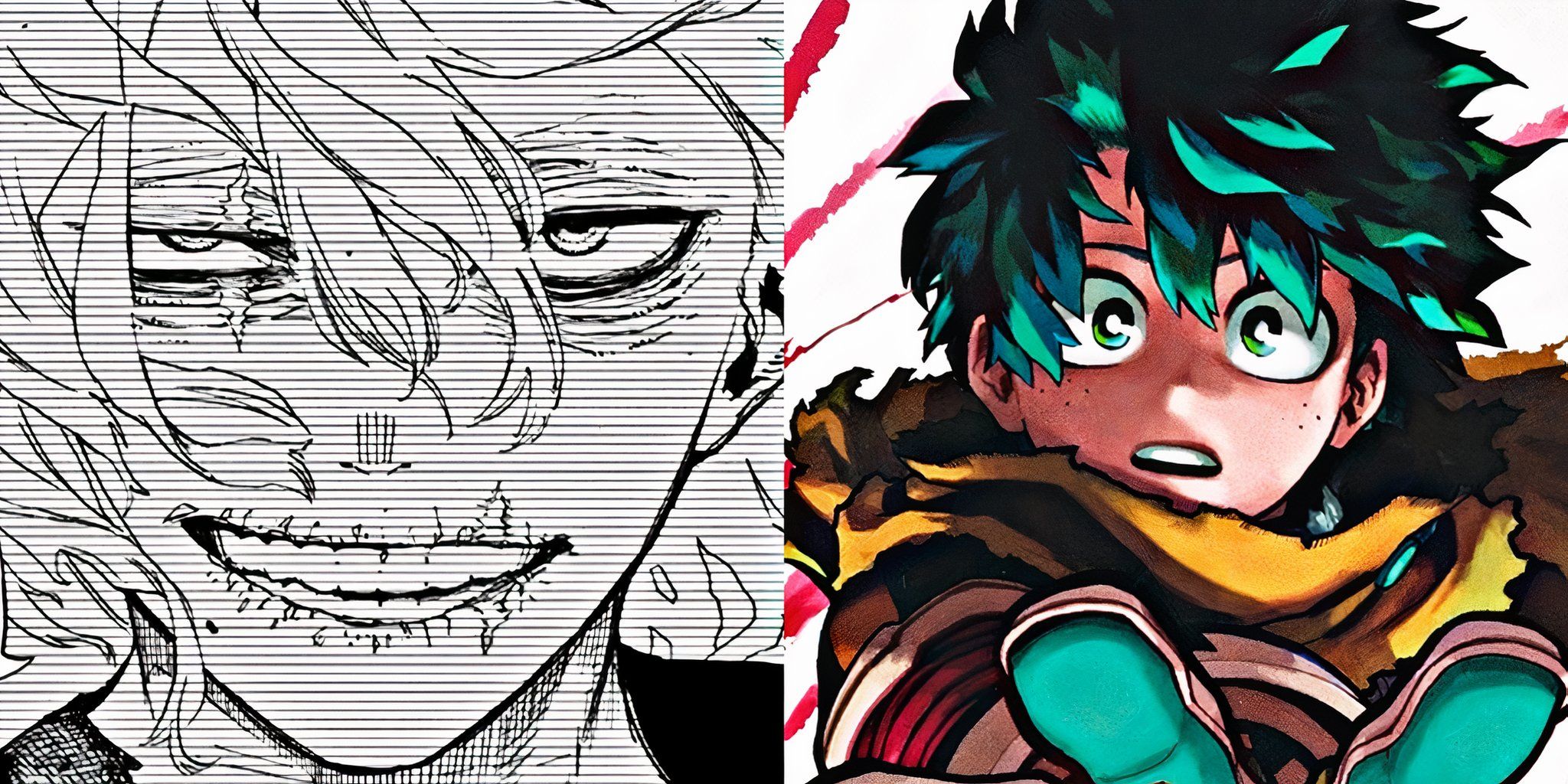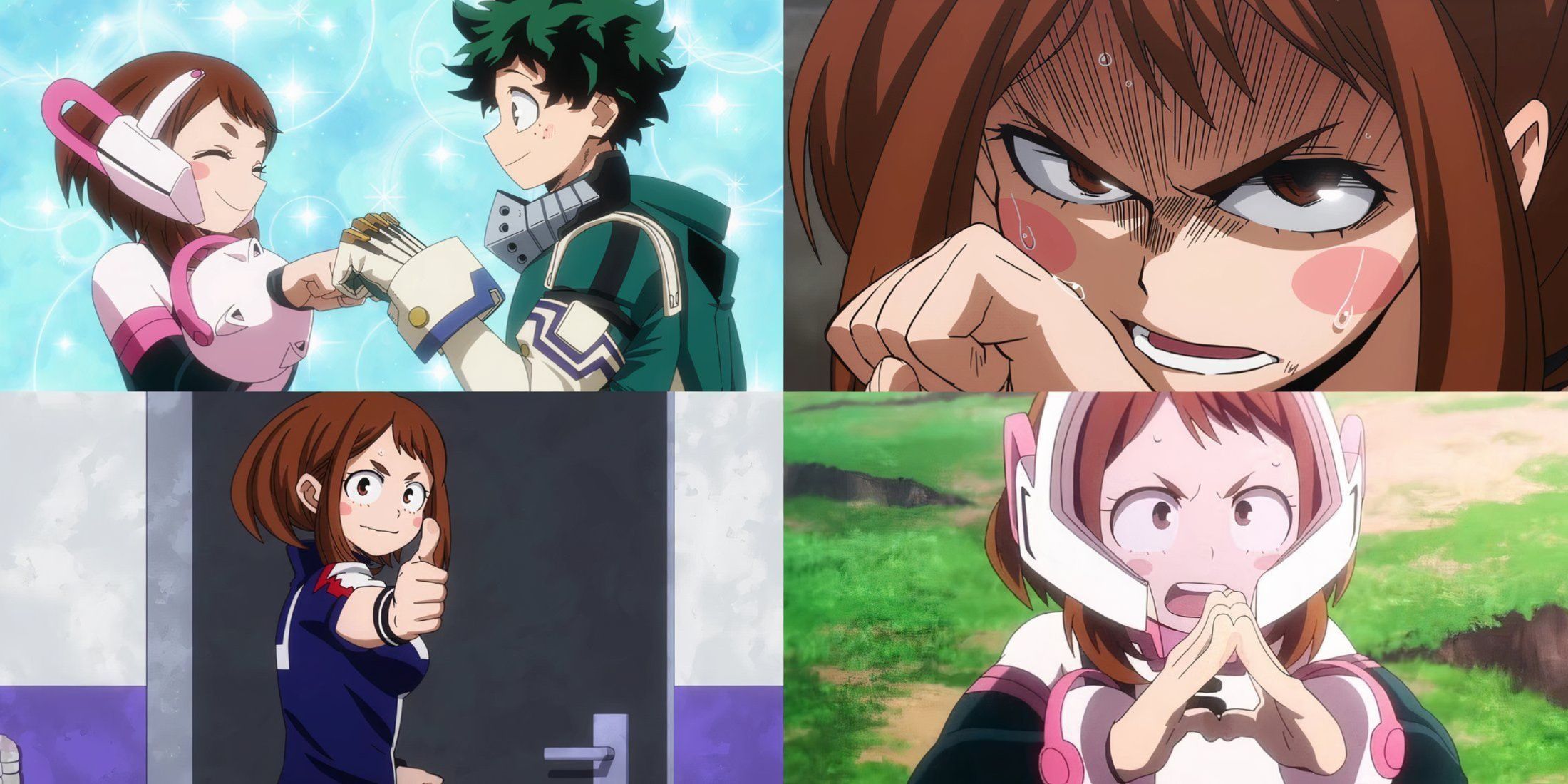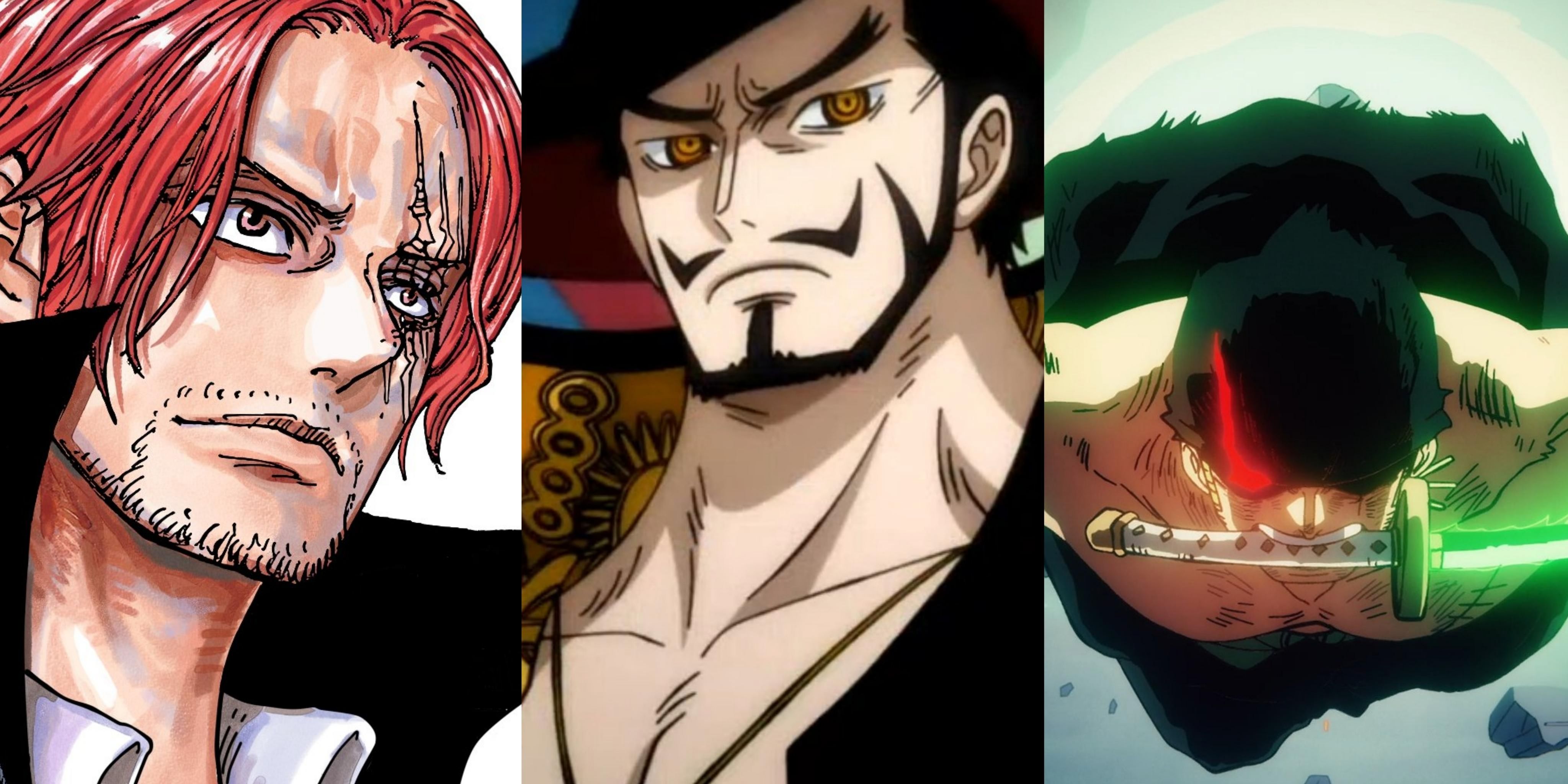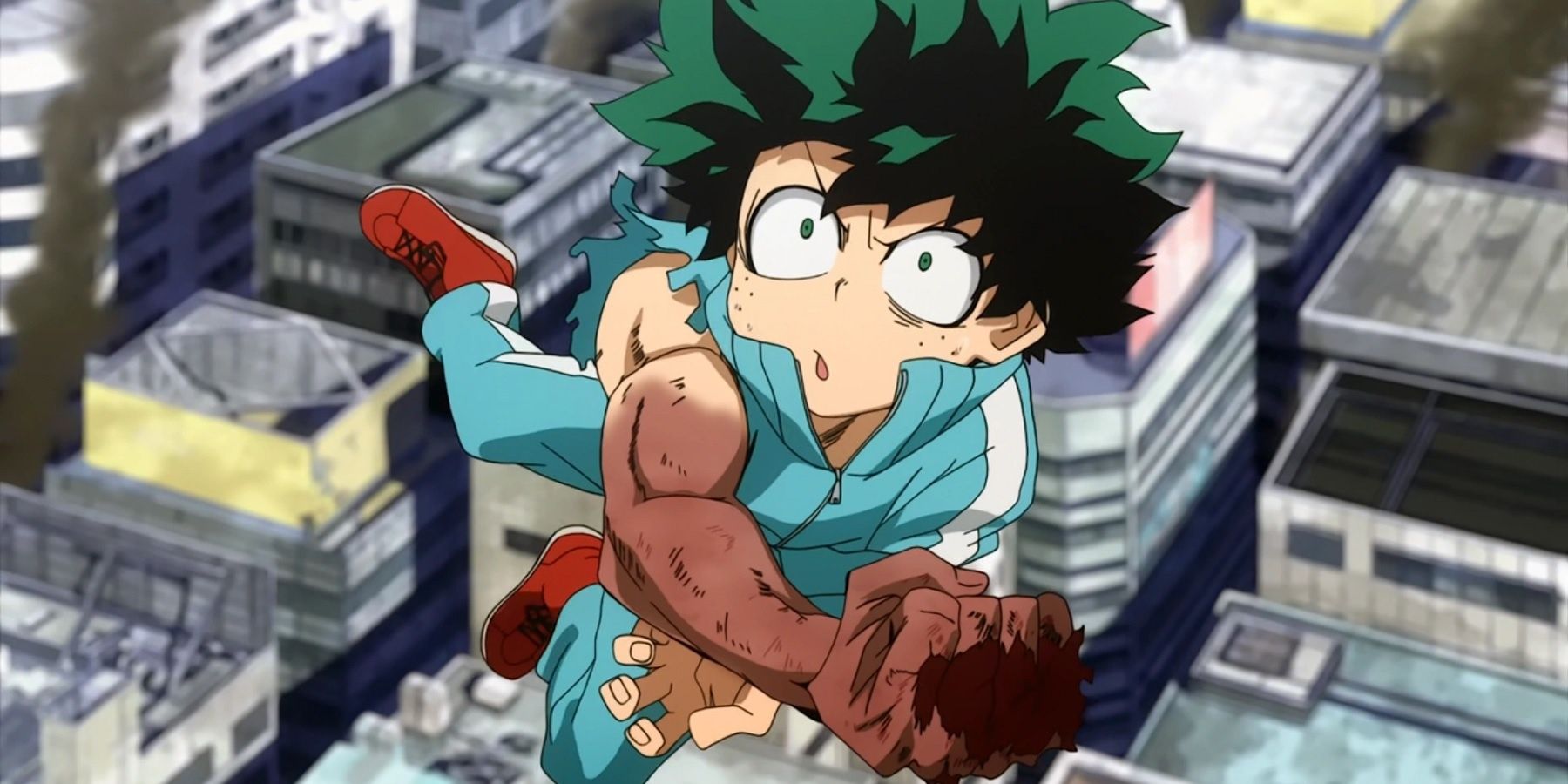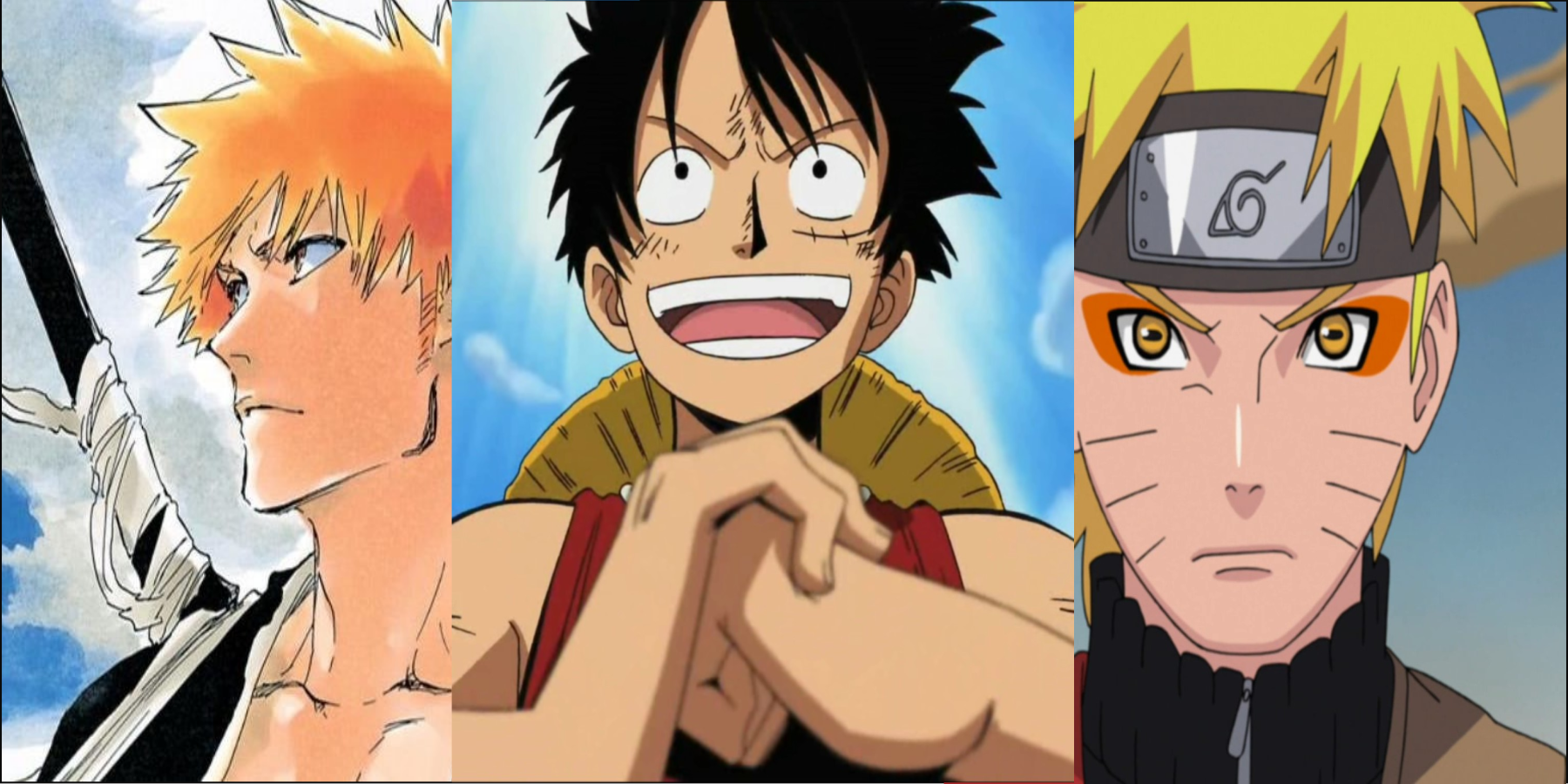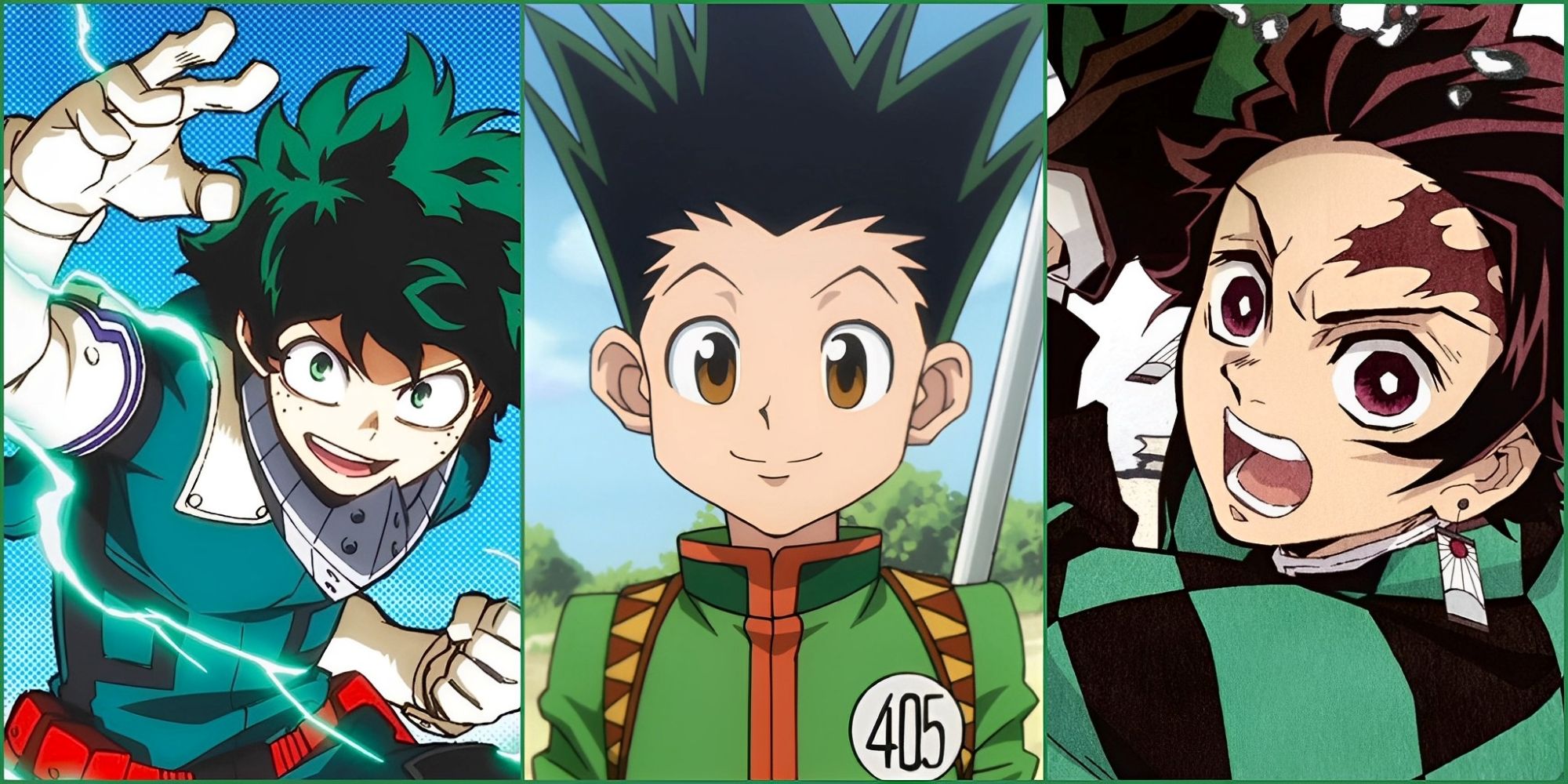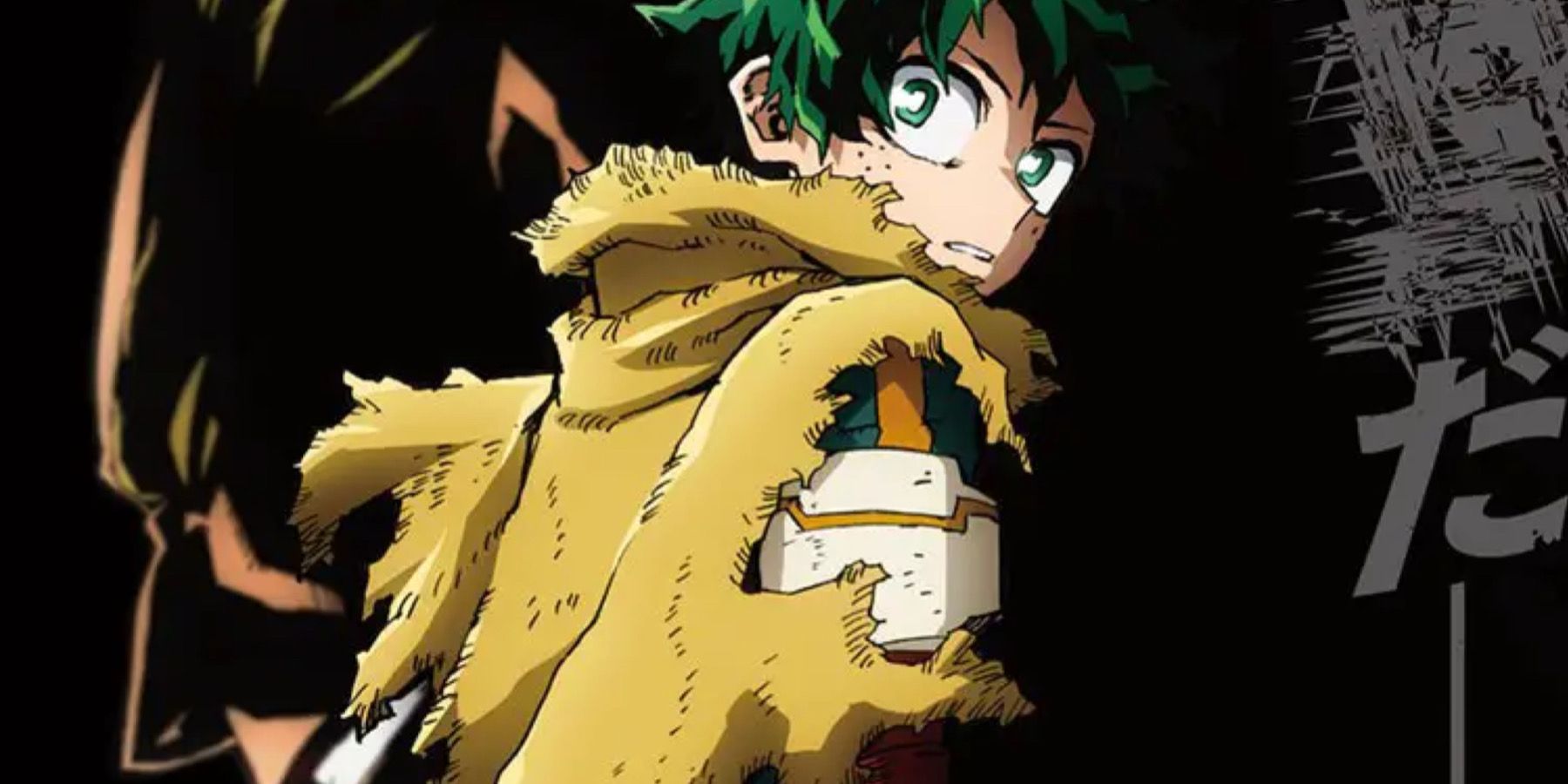My Hero Academia chraracter Izuku Midoriya stands out as the protagonist of one of the leading titles in the "new school" of shо̄nen taking over from the end of the "Big Three" era. While shо̄nen, especially the battle variety, is particularly good for its recycling of tropes, themes and character journeys, there's a level of dynamism within the most mainstream permutations of the genre.
The main character of My Hero Academia was expressly different from the protagonists of the era before him, and this difference also meant that the narrative itself, despite being a battle shо̄nen, would follow in the footsteps of its protagonists, all while walking a different path. What makes Deku so different from shо̄nen protagonists of old?
Orange Hero
In the rise of shо̄nen during the Golden Age of Jump, a particular kind of protagonist began to emerge – an adventuring, fun-loving, simplistic kind of main character who is largely characterized by goodness and a happy-go-lucky outlook. The impact of Dragon Ball is seen largely through the evolution of this kind of main character, who, for the sake of this analysis, we'll dub "orange protagonist". This ad-hoc category name is based on the tell-tale orange effects that *usually* adorn this kind of character. Generally, popular shо̄nen protagonists have been empathetic and highly emotional types, and the orange protagonist generally has a lofty goal and a strong sense of justice. The Big Three protagonists; Son Gokū; Hunter x Hunter MC Gon Freecss; JUJUTSU KAISEN MC Yuji Itadori; Haikyuu! protagonist Shо̄yo Hinata, the titular character from Akane-Banashi; even Emma from The Promised Neverland and various others fall into this category.
If one were to take a look at the Myers-Briggs personality profiles of such characters (if one believes in that kind of thing), they would see an overwhelming number of them with variations of the same profile – regardless of their intro- or extraversion, the vast majority of mainstream shо̄nen protagonists have the Feeling and Prospecting elements to their personality, which accounts for their lofty desires and emotionally charged journeys. For example, Gokū and Monkey D. Luffy have the same type – the ESFP, which also fits the idea that Luffy is a successor to Gokū as a shonen icon. Essentially, the Orange Protagonist is one whose personality type is largely charged by their Feeling and Prospecting traits – they do what they do based on feelings and not necessarily logic or what makes sense, and this is what also inspires their consistent breakdown of boundaries. They will fight the world for their friends and overcome insurmountable odds through sheer force of will and conviction. They usually have far more brooding and calculating characters as rivals, bringing characters like Vegeta, Sasuke, Uryū and Killua into their orbit.
Green Hero
It may be prudent to consider the orange protagonist the default when it comes to post-Dragon Ball battle shо̄nen, but only because of the sheer number of titles inspired by such characters. On the other hand, what we'll call green protagonists (for the same reason as above) are characters that are still feeling, but a lot less extroverted and leaning more into intuition generally. Deku's self-consciousness make him more of an introvert than other shо̄nen protagonists, but he is highly intelligent as well as empathetic, which enables him to not only care about the people around him but take enough of an interest in other people to collect copious amounts of data about their Quirks. He then applies this to his own understanding of One For All.
This then translates into his incredible judgment in combat, especially after the second season when he develops more control. The personality profile commonly associated with Deku is INFJ – primarily Introversion, Intuition, Feeling and Judgment. The feeling aspect could be seen as the most important element of the quintessential shо̄nen (Jump) protagonist after Dragon Ball, while extraversion is secondary to this aspect as a lot of them wear their hearts on ther sleeves like Gokū; Naruto; Asta from Black Clover or Luffy. Under the same idea as before, Deku is an example of a different kind of shо̄nen protagonist, one who isn't as self-assured as the rest, but still retains the desire to achieve a lofty goal while also starting out as one who has special attributes in a special world.
New School
Deku's process, be it in combat or in training, is far more internal and intellectual than the average orange protagonist, who is constantly able to keep going partly because of their boundless willpower. Deku is constantly grappling with the limitations of his own ability, or power. The first time he saves Bakugо̄; Deku finds himself running into danger just because it looked like Bakugo (his bully) needed help; or in the most recent arc of the anime when he shoulders the crumbling society by himself and avoids going back to U.A. to protect everyone. These actions make little sense logically, and even Deku is aware of this, and what ends up being his special attribute isn't his Quirk but his personality being a reflection of that which makes a hero.
While getting into dangerous situations can't be avoided, the green protagonist is more likely to use their head and their intuition to overcome, and their edge isn't as overt an advantage as much as it is a frame of mind that sets them apart. That being said, Deku is different because his journey, while ending in the same lofty place as other MC, his bleeding heart and incredibly long gestation period regarding the mastery of his powers change the entire tone of My Hero Academia. This shо̄nen "new school" has a number of such characters. There's also the idea that My Hero Academia presents Deku as the main character, but explores him in relation to characters such as Bakugо̄, *Todoroki and Tomura Shigaraki; each of whom are examples of quintessential main characters in their own right. If an orange protagonist is a feeler and dreamer moved by personal convictions, a green protagonist is similar, but more of a feeling thinker.

